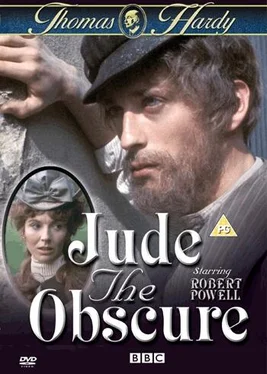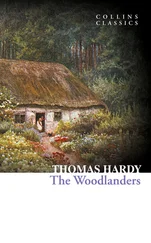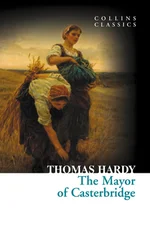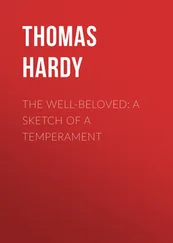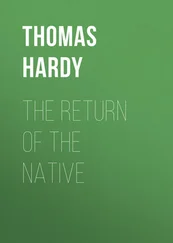As he had made up his mind to do this before he had written to his friend, there had not been much reason for writing to the latter at all. However, it was Phillotson's way to act thus.
He accordingly addressed a carefully considered epistle to Sue, and, knowing her emotional temperament, threw a Rhadamanthine strictness into the lines here and there, carefully hiding his heterodox feelings, not to frighten her. He stated that, it having come to his knowledge that her views had considerably changed, he felt compelled to say that his own, too, were largely modified by events subsequent to their parting. He would not conceal from her that passionate love had little to do with his communication. It arose from a wish to make their lives, if not a success, at least no such disastrous failure as they threatened to become, through his acting on what he had considered at the time a principle of justice, charity, and reason.
To indulge one's instinctive and uncontrolled sense of justice and right, was not, he had found, permitted with impunity in an old civilization like ours. It was necessary to act under an acquired and cultivated sense of the same, if you wished to enjoy an average share of comfort and honour; and to let crude loving kindness take care of itself.
He suggested that she should come to him there at Marygreen.
On second thoughts he took out the last paragraph but one; and having rewritten the letter he dispatched it immediately, and in some excitement awaited the issue.
A few days after a figure moved through the white fog which enveloped the Beersheba suburb of Christminster, towards the quarter in which Jude Fawley had taken up his lodging since his division from Sue. A timid knock sounded upon the door of his abode.
It was evening—so he was at home; and by a species of divination he jumped up and rushed to the door himself.
"Will you come out with me? I would rather not come in. I want to—to talk with you—and to go with you to the cemetery."
It had been in the trembling accents of Sue that these words came. Jude put on his hat. "It is dreary for you to be out," he said. "But if you prefer not to come in, I don't mind."
"Yes—I do. I shall not keep you long."
Jude was too much affected to go on talking at first; she, too, was now such a mere cluster of nerves that all initiatory power seemed to have left her, and they proceeded through the fog like Acherontic shades for a long while, without sound or gesture.
"I want to tell you," she presently said, her voice now quick, now slow, "so that you may not hear of it by chance. I am going back to Richard. He has—so magnanimously—agreed to forgive all."
"Going back? How can you go—"
"He is going to marry me again. That is for form's sake, and to satisfy the world, which does not see things as they are. But of course I am his wife already. Nothing has changed that."
He turned upon her with an anguish that was well-nigh fierce.
"But you are my wife! Yes, you are. You know it. I have always regretted that feint of ours in going away and pretending to come back legally married, to save appearances. I loved you, and you loved me; and we closed with each other; and that made the marriage. We still love—you as well as I— know it, Sue! Therefore our marriage is not cancelled."
"Yes; I know how you see it," she answered with despairing self-suppression. "But I am going to marry him again, as it would be called by you. Strictly speaking you, too—don't mind my saying it, Jude!—you should take back—Arabella."
"I should? Good God—what next! But how if you and I had married legally, as we were on the point of doing?"
"I should have felt just the same—that ours was not a marriage. And I would go back to Richard without repeating the sacrament, if he asked me. But 'the world and its ways have a certain worth' (I suppose): therefore I concede a repetition of the ceremony… Don't crush all the life out of me by satire and argument, I implore you! I was strongest once, I know, and perhaps I treated you cruelly. But Jude, return good for evil! I am the weaker now. Don't retaliate upon me, but be kind. Oh be kind to me—a poor wicked woman who is trying to mend!"
He shook his head hopelessly, his eyes wet. The blow of her bereavement seemed to have destroyed her reasoning faculty. The once keen vision was dimmed. "All wrong, all wrong!" he said huskily. "Error—perversity! It drives me out of my senses. Do you care for him? Do you love him? You know you don't! It will be a fanatic prostitution—God forgive me, yes—that's what it will be!"
"I don't love him—I must, must, own it, in deepest remorse! But I shall try to learn to love him by obeying him."
Jude argued, urged, implored; but her conviction was proof against all. It seemed to be the one thing on earth on which she was firm, and that her firmness in this had left her tottering in every other impulse and wish she possessed.
"I have been considerate enough to let you know the whole truth, and to tell it you myself," she said in cut tones; "that you might not consider yourself slighted by hearing of it at second hand. I have even owned the extreme fact that I do not love him. I did not think you would be so rough with me for doing so! I was going to ask you…"
"To give you away?"
"No. To send—my boxes to me—if you would. But I suppose you won't."
"Why, of course I will. What—isn't he coming to fetch you—to marry you from here? He won't condescend to do that?"
"No—I won't let him. I go to him voluntarily, just as I went away from him. We are to be married at his little church at Marygreen."
She was so sadly sweet in what he called her wrong-headedness that Jude could not help being moved to tears more than once for pity of her. "I never knew such a woman for doing impulsive penances, as you, Sue! No sooner does one expect you to go straight on, as the one rational proceeding, than you double round the corner!"
"Ah, well; let that go! … Jude, I must say good-bye! But I wanted you to go to the cemetery with me. Let our farewell be there—beside the graves of those who died to bring home to me the error of my views."
They turned in the direction of the place, and the gate was opened to them on application. Sue had been there often, and she knew the way to the spot in the dark. They reached it, and stood still.
"It is here—I should like to part," said she.
"So be it!"
"Don't think me hard because I have acted on conviction. Your generous devotion to me is unparalleled, Jude! Your worldly failure, if you have failed, is to your credit rather than to your blame. Remember that the best and greatest among mankind are those who do themselves no worldly good. Every successful man is more or less a selfish man. The devoted fail… 'Charity seeketh not her own.'"
"In that chapter we are at one, ever beloved darling, and on it we'll part friends. Its verses will stand fast when all the rest that you call religion has passed away!"
"Well—don't discuss it. Good-bye, Jude; my fellow-sinner, and kindest friend!"
"Good-bye, my mistaken wife. Good-bye!"
The next afternoon the familiar Christminster fog still hung over all things. Sue's slim shape was only just discernible going towards the station.
Jude had no heart to go to his work that day. Neither could he go anywhere in the direction by which she would be likely to pass. He went in an opposite one, to a dreary, strange, flat scene, where boughs dripped, and coughs and consumption lurked, and where he had never been before.
"Sue's gone from me—gone!" he murmured miserably.
She in the meantime had left by the train, and reached Alfredston Road, where she entered the steam-tram and was conveyed into the town. It had been her request to Phillotson that he should not meet her. She wished, she said, to come to him voluntarily, to his very house and hearthstone.
Читать дальше
